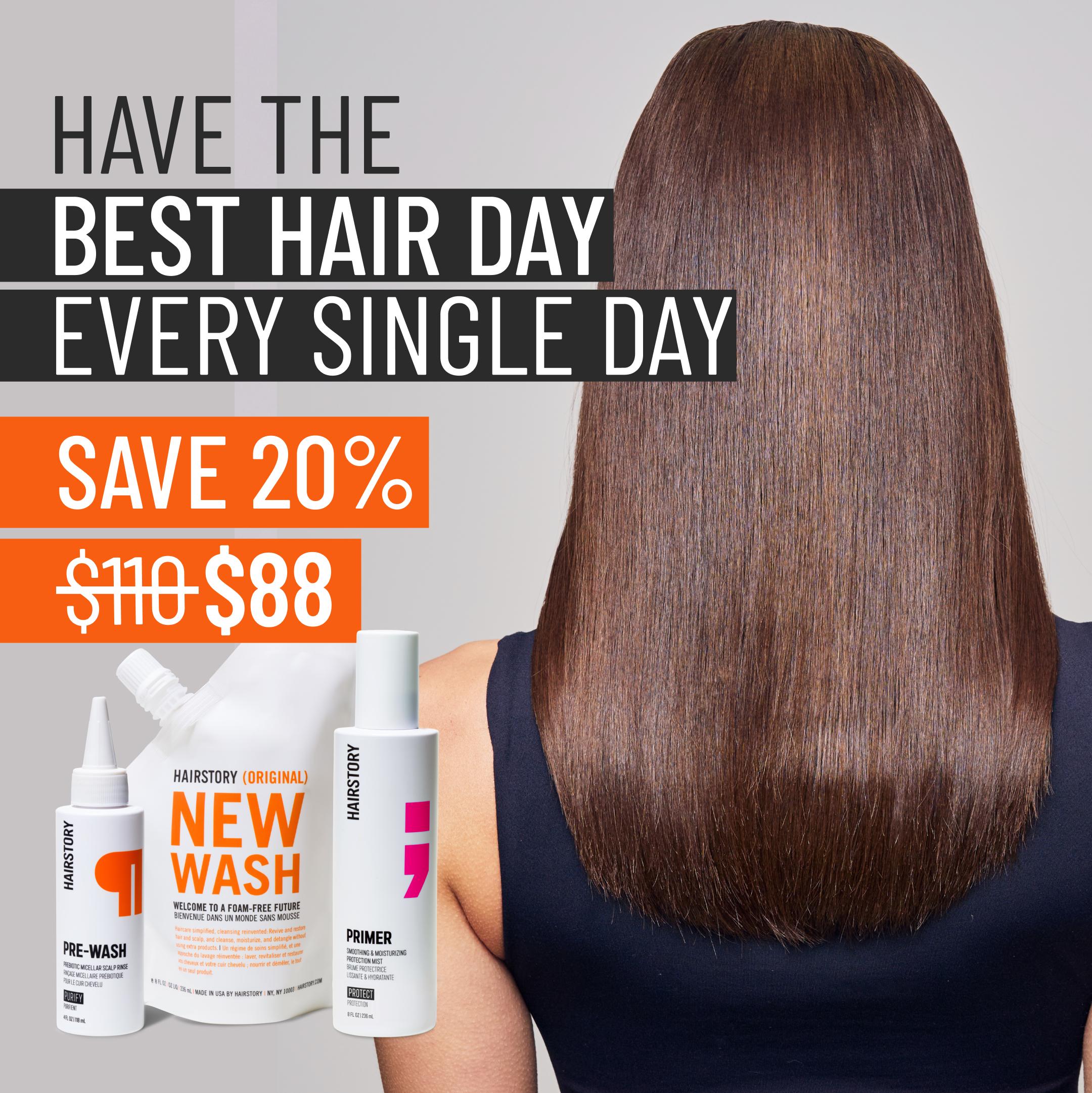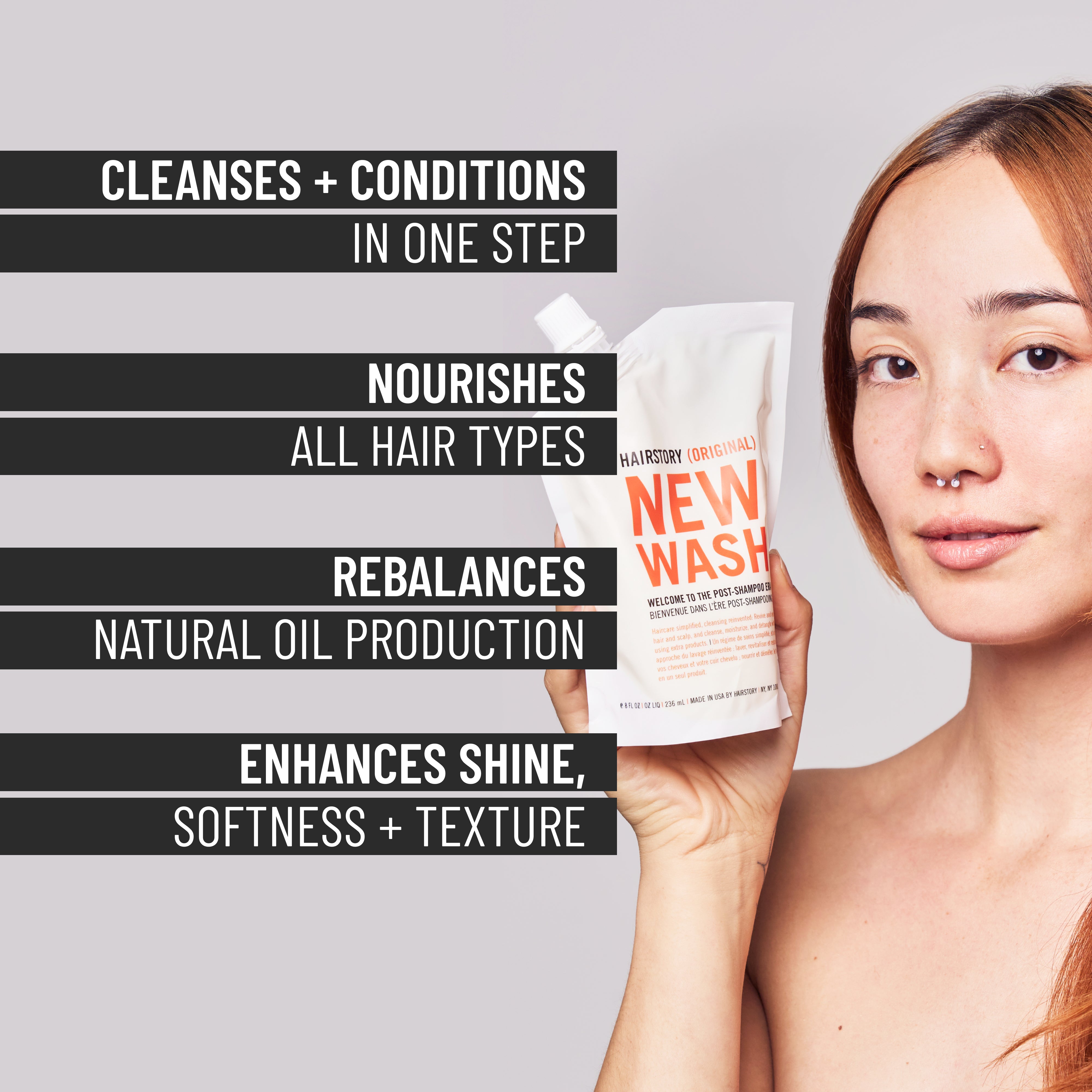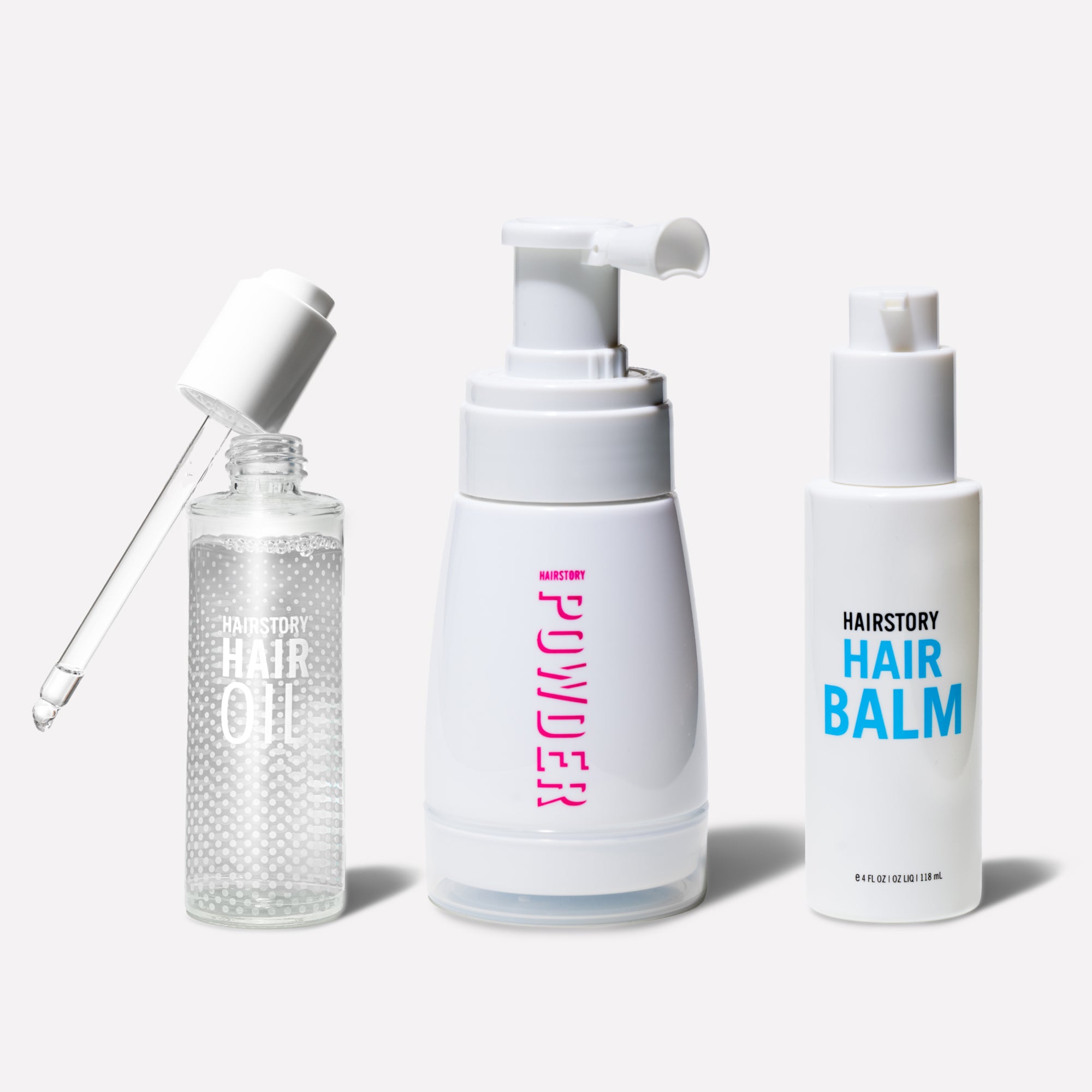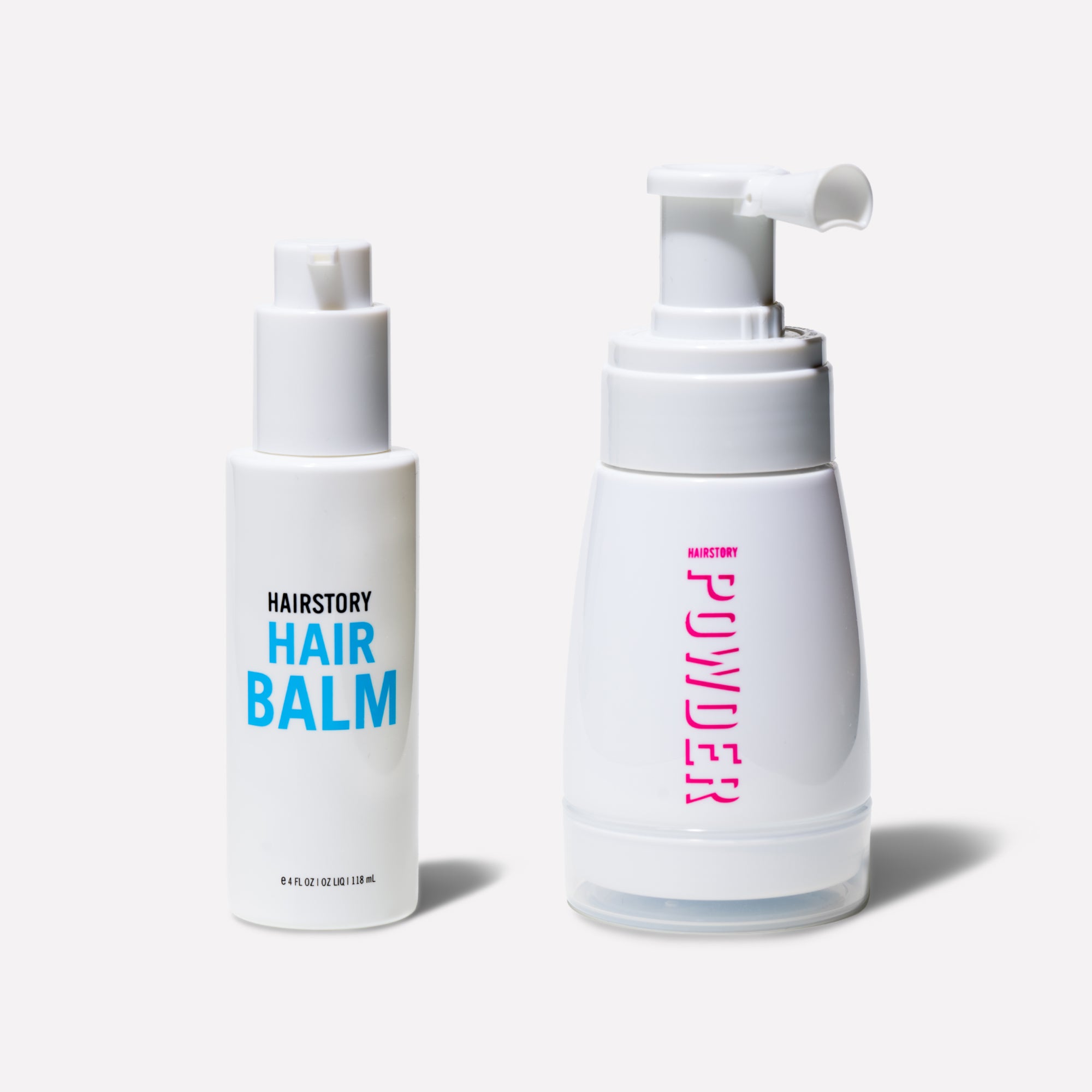Is shampoo bad for your hair? While it’s a staple in most hair care routines, shampoo could be doing more harm than good. Packed with harsh chemicals like sulfates, many shampoos strip away your hair’s natural oils, leaving it dry, brittle, and prone to breakage.
If you’ve ever wondered whether your trusted bottle of shampoo is secretly sabotaging your hair health, this blog will uncover the truth and explore alternatives for a healthier routine.
The Origins of Shampoo and Its Impact on Hair Health
Although shampoo was different at the turn of the 19th century, it was still perceived as drying and damaging. Early options were mainly soaps made from lye and lard, both of which have high alkalinity (pH) levels. A high pH is great for washing dishes and clothing, but too harsh for the body, and shampoo washing is extremely drying and taxing on the hair.
Using soaps that led to dry, flaky scalps and fluffy hair with the “natural life” taken from it was even less desirable to some than natural oiliness. Early advice columns recommended washing NO MORE than once a week, and leaving hair unwashed for as long as 6 weeks. Lived-in hair was also welcomed to keep often complex hairstyles in place.
Sodium lauryl sulfate was developed in the 1930s. What is sodium lauryl sulfate exactly? Often referred to as SLS, it is the first man-made detergent. It was originally developed to wash laundry but became popular as companies added it to all types of cleansing products because it was inexpensive, easy to manufacture, less harmful to hair and skin than lye and lard, and, most importantly, it lathered like crazy, which became associated with thorough cleanliness.
It’s important to remember that as times have changed, so has the degree to which we find oily hair acceptable. SLS made it easier for businesses to produce and sell more products and encourage consumers to use them more often.
Imagine this all in the context of American history. In the 1930s, the US government introduced the New Deal to encourage economic spending to get Americans out of the Great Depression. During WWII (1941-1945) women entered the workforce and began supporting their families while men were overseas. With the purchasing power in their hands, they began investing more heavily in personal care and beauty products.
After the war ended, the 'American Way of Life' was celebrated, and exercising democratic freedom by spending money at home was a way to enact revenge. America prospered, ushering in the golden age of advertising which helped the beauty industry as a whole flourish.
Why You Should Never Use Shampoo
How Shampoo Damages Your Hair
Many shampoos today contain harsh detergents like sodium lauryl sulfate (SLS) and sodium laureth sulfate (SLES), which are often the root cause of hair problems. If you've ever wondered, "Does shampoo damage your hair?" the answer lies in understanding how these detergents work.
Detergents are amphiphilic, meaning they bond with both oil and water. While this effectively removes grease and dirt, it also strips away your scalp’s natural protective barrier of sebum. This barrier keeps your scalp hydrated and protected from dryness, allergens, and environmental damage. For color-treated hair, the damage is even worse—detergents latch onto color pigments and wash them away.
The Hidden Effects of Shampoo on Your Scalp
Feeling “squeaky clean” after shampooing isn’t a good thing—it actually means your scalp’s natural oils have been stripped away. This squeak is caused by hair friction when its protective layer is gone. Without this barrier, your scalp becomes dry, irritated, and prone to flaking. Dry hair also tangles more easily, which is why shampoo users often need conditioner. Ironically, your natural oils already do what conditioner aims to replace.
The Vicious Cycle of Shampoo Use
Shampoo creates a harmful cycle: stripping natural oils leaves your scalp dry and irritated, prompting your body to produce excess oil as compensation. This makes your hair feel greasy sooner, encouraging more frequent washing. Over time, this endless loop damages your hair and scalp, making healthy hair harder to achieve.
Shampoo is harmful in many ways:
• It dries out and irritates your scalp.
• It strips your hair of color
• It causes tangles (which require conditioner)
• It promotes excessive sebum production.
By understanding these effects, it’s easier to see why shampoo may not be as beneficial as it seems.
Common Myths About Shampoo That Keep You Coming Back For More
There are many myths created by shampoo salesmanship to keep us coming back. We’ve tackled this rhetoric to help us see through the suds in our eyes:
Is it OK to just shampoo your hair (without conditioner)?
No, shampooing your hair without conditioner can damage your hair by stripping it of its natural oils. This leaves your hair dry, vulnerable, and more prone to breakage and damage. Conditioners are typically required to restore moisture and smoothness, but even then, the overuse of shampoo causes more harm than good in the long run.
Lather, rinse, repeat
This bit of marketing magic is a genius way to get us to do one thing: use more shampoo. Don’t believe us? Look it up.
‘Dirty’ hair makes for better styling.
This is true, which is why we often add texture products to make hair less glassy, slippery, and unmanageable when freshly washed with shampoo. This is why so many people are seeking to wash less frequently: less clean hair is simply more cooperative.
Squeaky clean
You never want to hear squeaks coming from your head! This means that your hair and scalp has been stripped of its natural protective barrier of sebum. Without it, you risk dryness and skin irritation.
Shampoo Alternatives: The Modern Way To Say No to Shampoo
Your hairdresser may have urged you to wash as little as possible, and that’s because there are so few detergent-free options that actually clean hair – until now. Sure, there are so-called gentler detergents, but buyer beware of wolves in sudsy sheep’s clothing.
Sulfate-free shampoo
Sulfate-free shampoos may sound like a healthier option, but they still contain detergents that can strip your hair of its natural oils. If you're asking, "Is shampoo bad for your hair?", the answer is yes—even sulfate-free versions can lead to dryness and irritation. While these shampoos avoid sulfates, they don’t solve the underlying issue: detergents that damage your hair and scalp over time. To learn more about the effects of sulfates, check out our detailed guide on sulfates in shampoo and their impact on hair health.
Why Shampoo Bars May Not Be the Answer
At best, they are a rebranded bar of soap that contains SLS. At worst, they are made with sodium hydroxide which is the same highly corrosive material found in Drano. You’ve seen what Drano does to hair that clogs your shower drain in a few hours, imagine what small quantities are doing to your scalp over time. Pass!
The Best Alternative: New Wash
New Wash is completely detergent-free. It cleanses with a proprietary blend of essential oils that keep your protective barrier intact, while removing dirt and oils from the scalp. New Wash does not strip away good oils, meaning hair stays moisturized without using an additional conditioner.
Dry Shampoo: A Quick Fix With Caveats
Nowadays there are other ways to manage oiliness. Dry shampoo is a great alternative to a full wash, but it’s important to recognize that it can contain harmful minerals like talc, which are known to cause cancer. Plus aerosol cans are not good for the environment. We recommend trying our aerosol-free and talc-free formula, Powder.
Since the advent of modern hair washing, we have known that shampoo is not ideal. It strips hair of its vital oils while cleaning, leaving scalps irritated, flaky and strands dry and prone to breakage. An oily scalp is the main reason why people wash their hair and consider it ‘dirty.’ But the product you think is ‘cleaning’ your hair is actually stripping it.
Conclusion: Is Shampoo Bad For Your Hair?
While shampoo has become a staple in modern hair care routines, it’s clear that traditional formulas come with significant drawbacks. Most shampoos, especially those containing harsh detergents, strip away the natural oils that protect and nourish your hair. This leads to irritated scalps, dry and brittle strands, and an overproduction of oil, trapping you in a cycle of over-washing.
But there’s a better way. The very product you’ve been relying on to “clean” your hair may be the root cause of your hair woes. It’s time to break free from this damaging routine.
If you're ready to transform your hair care and embrace a healthier, more natural approach, consider switching to New Wash. Our detergent-free formulas cleanse your hair without stripping away essential oils, leaving it balanced, hydrated, and full of life. Say goodbye to shampoo and hello to a new era of hair care. New Wash—because your hair deserves better.















































